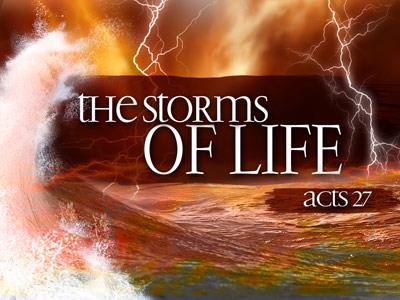-
Overcoming Life's Challenges
Contributed by David Owens on Nov 28, 2017 (message contributor)
Summary: In this sermon, we explore the way that God is able to break down any wall, and that He alone can handle the tool of vengeance.
Introduction:
A. Let me start by asking you a few questions.
1. What have been the greatest challenges you have faced in your life?
2. What have been the biggest obstacles you have had to overcome?
3. What have been the hardest walls you have run into?
4. How many of them are you still facing?
B. Today I want us to talk about overcoming life’s challenges.
1. Here’s an interesting quote to ponder: “If you can find a path with no obstacles, it probably doesn’t lead anywhere.” (Frank Clark)
2. I think there is a lot of truth to that statement.
C. Well, I think you would agree that our study of the story of Esther has been an exciting one with one cliffhanger after another.
1. And each of those cliffhangers has involved a great challenge or obstacle.
2. Week after week, we have seen the tension build to an exciting crescendo last week.
3. As we have seen, Xerxes the pagan king of Persia had disposed of Queen Vashti and had replaced her with our heroine, Esther.
a. There was something important that the king was not aware of - Esther was Jewish.
4. Years later, King Xerxes chose a man named Haman to be his prime minister.
a. There was something important that the king was not aware of – Haman hated the Jews.
5. Esther’s adoptive father, Mordecai, also a Jew, sat at the king’s gate and would not show customary respect to Haman.
6. When Haman discovered that Mordecai was a Jew, he was able to pass a law that would lead to the extermination of all the Jews from the kingdom at the end of the year.
7. But he grew impatient for the year to end, and determined to build a huge gallows on which he would have Mordecai hanged immediately.
8. Esther called on God’s people to fast and pray, and then she put her life on the line by approaching the king with her request that the king spare her life and the life of her people.
9. Last week we saw the culmination of this suspenseful story – when the king learned that Esther’s life was on the line, and that Haman sought to kill her along with all the Jews. King Xerxes had Haman hanged from the very gallows he built for Mordecai.
10. That’s where we ended the story last week, and so that’s where we will resume the story today.
I. The Story
A. Let’s begin in Esther chapter 8: That same day King Xerxes gave Queen Esther the estate of Haman, the enemy of the Jews. And Mordecai came into the presence of the king, for Esther had told how he was related to her. The king took off his signet ring, which he had reclaimed from Haman, and presented it to Mordecai. And Esther appointed him over Haman's estate. (Esther 8:1-2)
1. There is evidence in extra-biblical literature that the property of condemned criminals reverted back to the crown.
a. So in this case, the estate of Haman, a condemned criminal, would normally become the property of the king.
2. But the king didn’t want it for himself, so instead he gave it to Esther, who in turn gave it to Mordecai.
a. Don’t you think that would cause Haman to turn over in his grave! I think so!
3. Esther brought Mordecai into the king’s presence and revealed that Mordecai was her adoptive father.
4. And how did King Xerxes treat Mordecai? He made him his new prime minister.
5. King Xerxes gave Mordecai his signet ring and gave him Haman’s old position.
a. You talk about a reversal of position and fortune!
b. The fall of Haman had now been totally balanced by the rise of the one he sought to destroy.
c. Last week we talked about “what goes around comes around” and the OT proverb, “if a man digs a pit…”
B. Now, Haman may be gone, but his edict for the destruction of the Jews was still in place.
1. The Bible says: Esther again pleaded with the king, falling at his feet and weeping. She begged him to put an end to the evil plan of Haman the Agagite, which he had devised against the Jews. Then the king extended the gold scepter to Esther and she arose and stood before him (Esther 8:3-4).
2. Esther knew that now was the moment to achieve the overthrow of Haman’s decree and deliver the Jewish people.
a. So Esther humbly fell before the king and wept.
b. The genuine tears of anyone, especially a woman whom one loves, are absolutely irresistible.
3. So the king again extended the gold scepter to Esther, thus signaling his approval and giving her permission to speak.

 Sermon Central
Sermon Central



